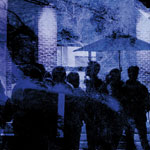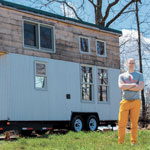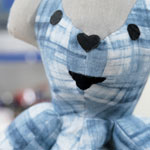
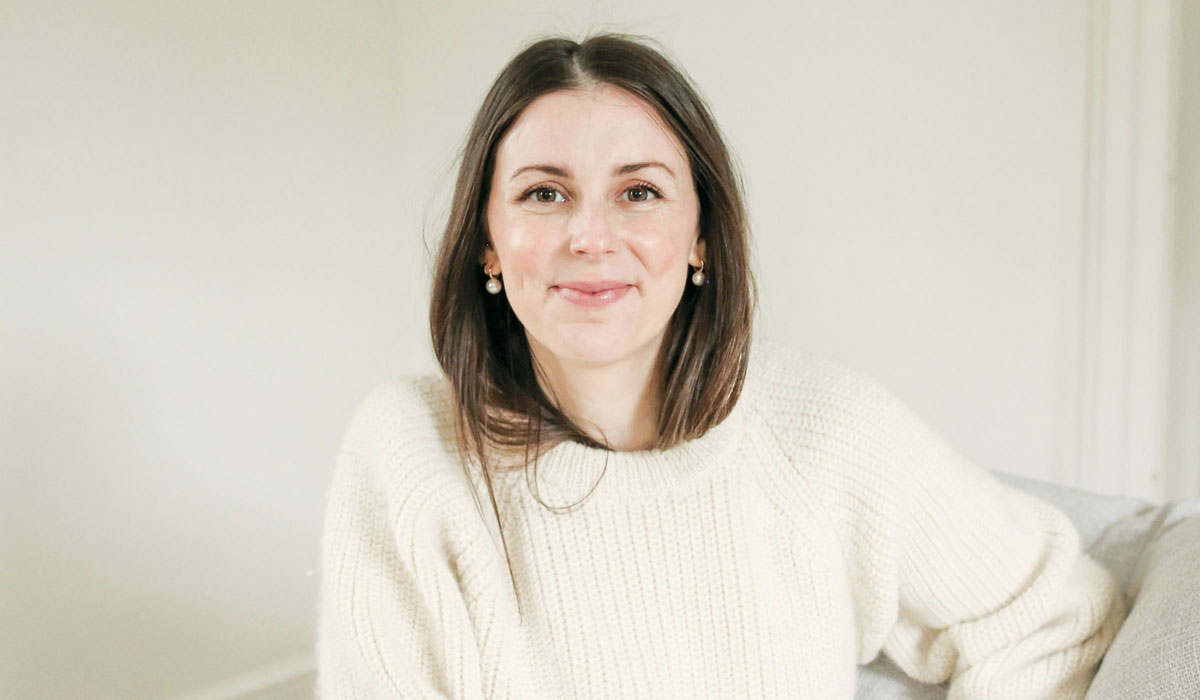
In late 2017, I started my company, sister katie, from my dining room table in San Francisco. I was coming off a handful of years in a career in advertising that left me less than inspired. With no background in fashion, except a keen and passionate interest in my own wardrobe, I was certainly taking a leap of faith. I was really flying by the seat of my proverbial high-waisted, wide-leg pants.
My company’s goals have always been to create comfortable clothes to live in—clothes you never want to take off. From a commercial perspective, I got lucky when my business took off after the COVID-19 pandemic struck, and lots of people were looking for comfy and cozy pieces to hunker down in at home. I do everything at sister katie with the idea that fads fade but comfort is eternal.
Building our brand
In my personal life, I find myself investing in well-made pieces of clothing that I can wear mixed and matched, dressed up or down, and for many years to come. I refer to this way of getting dressed as “uniform dressing,” and it’s at the core of the sister katie brand. It just so happens that my preferred approach to wardrobe-building is also a more sustainable approach.
At Gettysburg, I was an art history major with a specific interest in art theory, and I learned a lot. I find myself often pulling from that knowledge base when considering colors and the overall aesthetic for my collections. At sister katie, we create simple and refined wardrobe essentials for women (and sometimes kids!) that make you feel as good as you look. We find inspiration all around us, from soft, neutral colors and textures found in nature to interiors and visual art. Our pieces are inspired by everyone, including characters in television and film, iconic real women we all know and love, and others we pass by on the street. We love to tell stories through our clothes and design pieces that will evoke a sense of nostalgia.
Realizing our impact
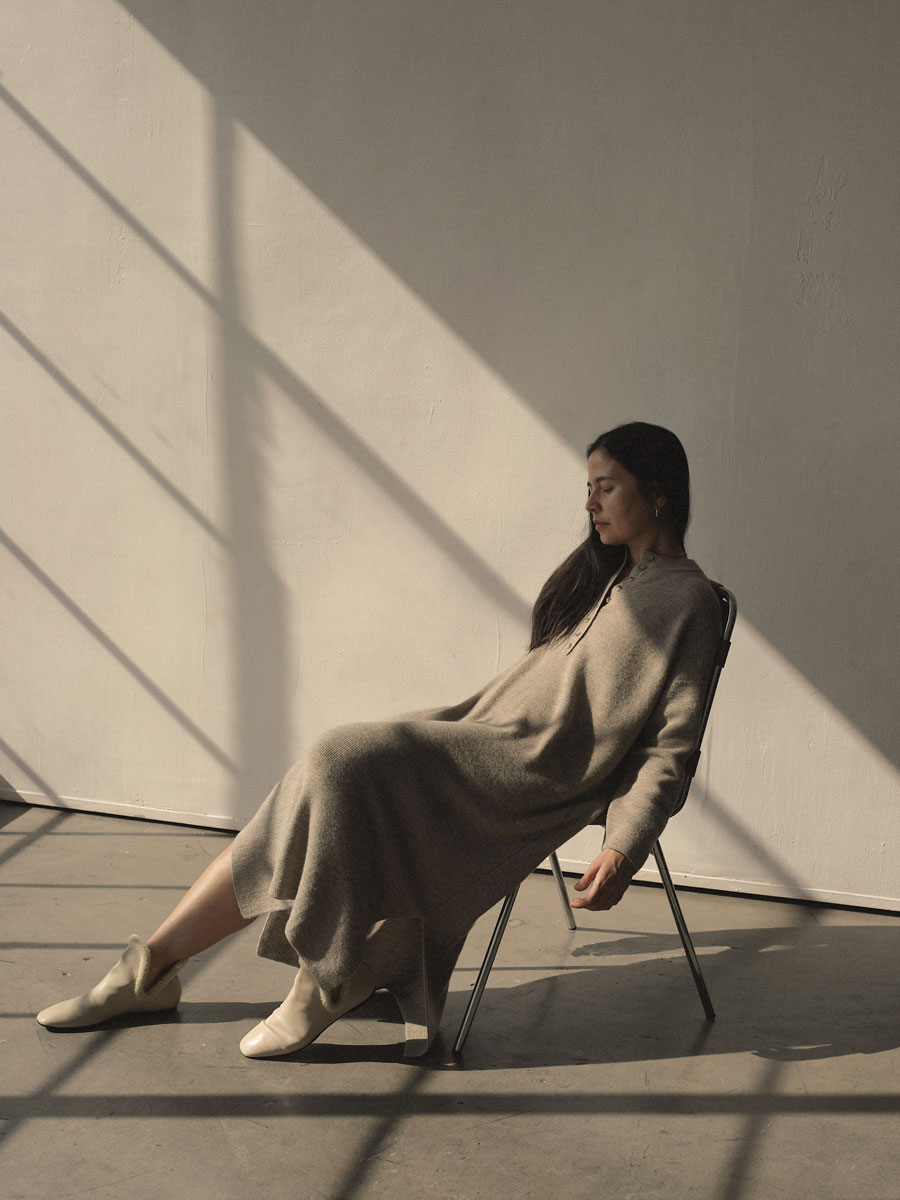
It was clear to me early on that my passion and interest revolved most around design and branding, but I was equally aware that how I chose to operate my business mattered. The expectations of small business owners were changing. Great designs and compelling brands were no longer enough. Articulating a purpose and upholding my values were going to be important. It is no secret that the fashion industry has a significant environmental impact, and I was committed to doing my part in how I established and operated my business thoughtfully.
The last three years have been an education, and I’m still very much on that journey. There is a lot to learn, and I’m grateful to brands like Paravel, a New York-based travel brand, and Christy Dawn, a Los Angeles-based womenswear brand, for leading the way on this critical topic of sustainability in fashion. How do we as humans and businesses impact the environment? While not perfect, I’ve done my best to be thoughtful about my partners, my products, and my process.
Playing our part
When asked about sustainability relative to my business, I acknowledge immediately that the fashion industry—sister katie included—is inherently unsustainable. We produce new items, and that production has an impact on the environment. The most sustainable approach to personal fashion would be buying pre-owned and sustainably made clothing. In the last year, we launched a resale market where customers can sell and buy pre-loved sister katie pieces right on our website. By participating in the marketplace, our customers keep timeless sister katie pieces in circulation and out of the landfill—and they earn a little extra spending money too.
From the beginning, and season after season, we have chosen to keep our collections small. We aspire to avoid producing excess inventory and to have the right amount of product for those who really want it. To help get the supply-and-demand equation right, we have introduced a pre-order structure for certain pieces. Made-to-order products cut down on waste since we are only manufacturing items that have been claimed by a customer. We recognize that customers can receive next-day items from bigger brands, but we believe that the pre-order model is the future of sustainable fashion.
Sustainability in fashion goes much deeper than organic materials and compostable packaging—both of which we use. It requires an industry-wide, end-to-end review of systems and processes. I’ve shared a few small ways that we’ve evolved our operation, like our pre-order structure, but we remain curious about the ways we can continue to improve at sister katie. I trust—and I hope—this remains a very active discussion in the industry and that we can continue to play our small part.
Photos by Kate Pauley and James Branaman
Posted: 06/01/22
